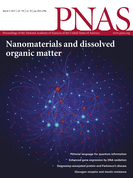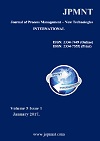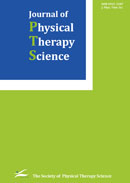 A pathology journal has retracted a 2015 paper from researchers in China after concluding the authors had falsified and copied some of the data and text.
A pathology journal has retracted a 2015 paper from researchers in China after concluding the authors had falsified and copied some of the data and text.
According to the notice, a “knowledgeable informant” told the journal about the overlap and “fraudulent” aspects of the paper, which the editors were able to confirm. The journal retracted the paper last month.
Here’s the retraction notice for “Genistein attenuates glucocorticoid-induced bone deleterious effects through regulation Eph/ephrin expression in aged mice:”
Continue reading “Knowledgeable informant” outs researchers for falsifying data
 It would seem that resorting to legal means to avoid editorial notices doesn’t always work.
It would seem that resorting to legal means to avoid editorial notices doesn’t always work.


 Here’s something we haven’t seen before: A journal based in Serbia recently began listing all the articles it has retracted, all due to plagiarism.
Here’s something we haven’t seen before: A journal based in Serbia recently began listing all the articles it has retracted, all due to plagiarism. Two blog posts are shining additional light on a recent retraction that included some unanswered questions — namely, the identity of the researcher who admitted to manipulating the results.
Two blog posts are shining additional light on a recent retraction that included some unanswered questions — namely, the identity of the researcher who admitted to manipulating the results. Some recent communications from companies involved in academic publishing have some journal representatives worried. In one instance, a manuscript editing company offered to pay an editor to help its papers get published in his journal; in another, a research ethics company threatened to investigate all of an author’s papers if he or she didn’t donate thousands to support the company’s efforts. Bottom line: Research authors (and editors) should beware companies offering unethical manuscript editing and other publishing services. Below are examples (which we’ve verified) compiled by
Some recent communications from companies involved in academic publishing have some journal representatives worried. In one instance, a manuscript editing company offered to pay an editor to help its papers get published in his journal; in another, a research ethics company threatened to investigate all of an author’s papers if he or she didn’t donate thousands to support the company’s efforts. Bottom line: Research authors (and editors) should beware companies offering unethical manuscript editing and other publishing services. Below are examples (which we’ve verified) compiled by 
 Researchers have retracted two 2016 papers from the same journal which were published without the permission of the supervising scientists.
Researchers have retracted two 2016 papers from the same journal which were published without the permission of the supervising scientists.